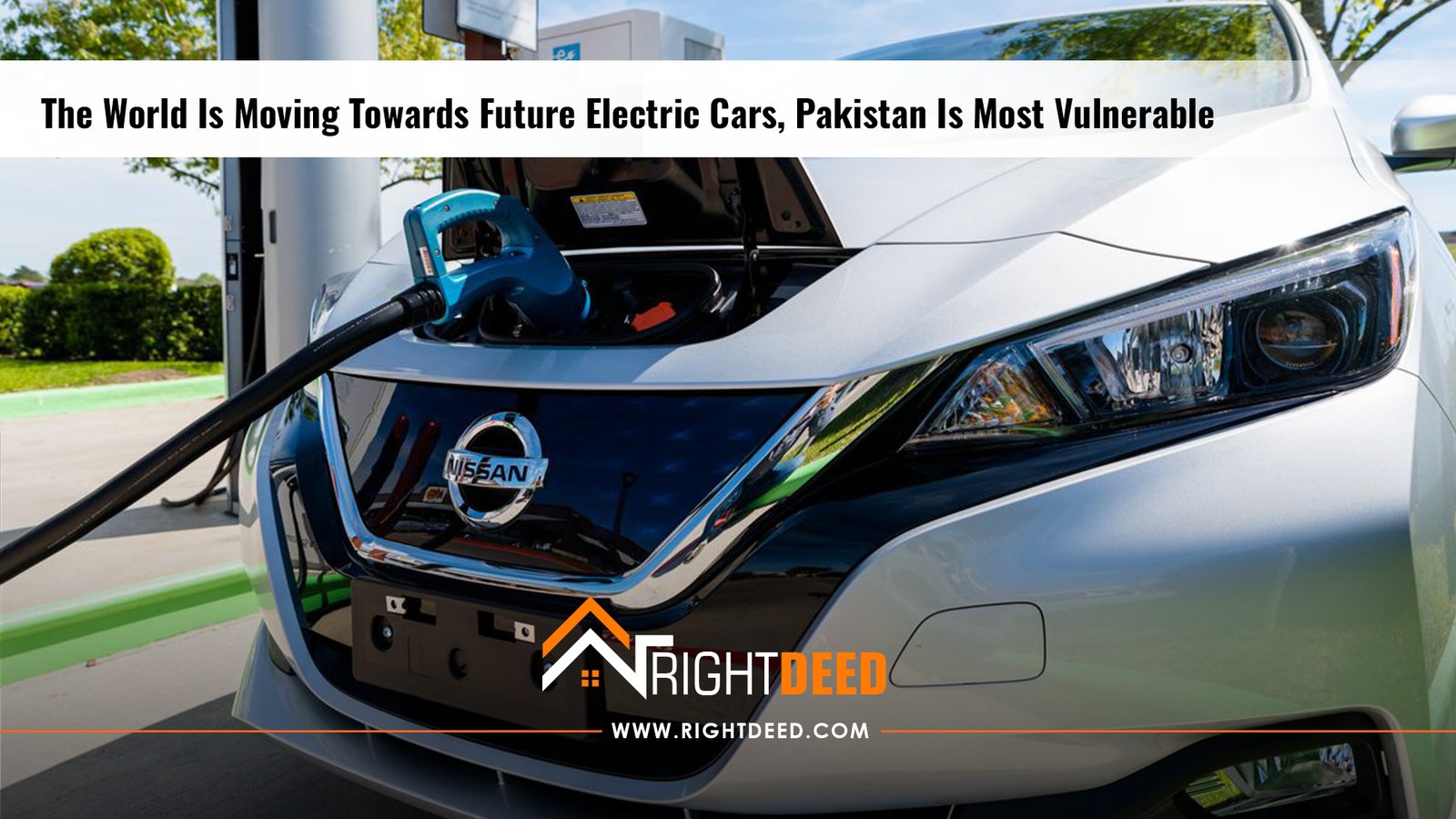The World Is Moving Towards Future Electric Cars, Pakistan Is Most Vulnerable

However, prior to the previous govt, Imran Khan shows interest.
Imran Khan intends Pakistan to be a front and middle in his effort as the globe moves to electric cars in order to save the environment. However, it's not a simple thing to do.
There is a world that's about to be dead. This time and time again we have been told but we keep on poisoning the planet, pumping dangerous gasses into the air and contaminating it on land and sea, without paying any attention to the future.
The car industry is one of the fields recognized as crucial to stopping the imminent environmental Armageddon standing on our heads .. Naturally, no brainer alternative is to throw fuel- oriented vehicles out of the smarter electrical designs.
Read More: Lahore’s Royal Palm Club Case in Favour Of Railways
There has been strong interest in electric vehicles for many companies in developed countries around the globe. Mercedes-Benz ' parent company, German luxury car manufacturer Daimler, will purchase more than 20 trillion euros in battery cells ($22.75 trillion) in 2030 to prepare for mass production of hybrid and electric cars.
More than 10 pure electric vehicles were also scheduled for Toyota International in its range by the beginning of the 2020s. At present, there are no solely electric vehicles available in Toyota. But it contributes to hybrid designs that change between an electric motor and a gas motor.
Nine nations worldwide and a dozen cities or states have announced plans over the last few years to phase out diesel motors. All Paris, Madrid, Athens and Mexico City announced their domain end to diesel and diesel cars by 2025. By 2025, Norway will gradually eliminate traditional vehicles, followed in 2040 and 2050 by France and the UK. 70 cities are committed to carbon-neutrality by 2050 in accordance with the World Economic Forum's study.
Pakistan, even though it is one of World's most fragile nations in relation to climate change and pollution, is still not quite in the planning for electric vehicles. The CRI (Long-Term Climatic Risk Index) shows that Pakistan has lost 10,248 life and $3,8 billion, out of the 10 countries most impacted from 1998 to 2017.
After coming to office, Prime Minister Imran Khan has fortunately shown interest in the resolution of the huge problems caused by FFV transport. Imran Khan intends his party, the PTI, to guide Pakistan to a greener and more sustainable future. It's a wish that is easy enough. That is why he obviously took a strong stake in the country's auto industry. After the latest conference between the Premier and representatives of the Ministry of Climate Change, Pakistan agreed to increase its path map to around 30 per cent by 2030.
The reduction of carbon emissions not only helps the environment but also reduces transport charges. Climate Change Advisor Malik Amin Aslam asserted that the plan could contribute to the reduction of oil demand and accrue annual savings of up to Rs2 billion.
But switching to clean fuel, let alone to a country like Pakistan is not a simple challenge for the sector. The greatest obstacle, at least at the stage where a person is investing, will have to pay if he or she chooses clean energy cars.
The choice of an electric version of a vehicle would actually involve a further cost of 80 per cent in place of the standard model, as electric cars are at the time so costly, according to an established source from the vehicle production business OEM (Original Equipment Manufacturer).
According to the Zero Draft for Electric Vehicles of the Ministry of Climate Change (MOCC), a target of 100,000 EVs was set in the next 5 years to hit the streets. Following automobile industry customs, the next goal was to manufacture 30% of the complete vehicles manufactured within a year. Many thinks that electric charging stations would be the greatest obstacle.
This is not infrastructure, however, as opposed to CNG or petrol pumps it is simpler to have power charging stations. The larger issue is that loading takes time and businesses are currently doing a great deal of research and development to make the loading period closer by 4-6 hours to 10 minutes. However, this issue would be resolved if individuals can pay Electric cars wherever the vehicles are parked, particularly when the cars are parked at home or in the office overnight.
According to a US Department of Energy website fueleconomy.gov, EVs convert about 59%–62% of the electrical energy from the grid to power at the wheels. Conventional gasoline vehicles only convert about 17%–21% of the energy stored in gasoline to power at the wheels. If the Pakistan government approves climate change ministry’s proposal on electric vehicles, where it has asked for zero customs duty and the sales tax on CBUs for the first two years, EVs may even be selling for just a little over Rs1 million, according to a working Qureshi showed.
While Qureshi could not give details about the vehicles they were looking to import out of fear of competitors, the two cars initially being brought in are vaguely named as V5 and V9 which can be compared with the Suzuki Cultus and the Toyota Vitz respectively. The cars have already been test-driven in Pakistan.
Read More: Budget for Pakistan’s Real Estate Sector 2019-20
The auto industry in Pakistan was always criticized for its hesitation in innovation. Car companies in Pakistan have not changed designs for centuries; Suzuki's Mehran has only been abandoned as the classic example.
However, with the pledge, it remains to be seen whether the policy on electric cars is to be exposed at any moment. Whether it will give pleasure or disappoint us.














0 Comments